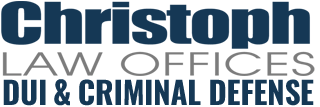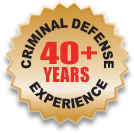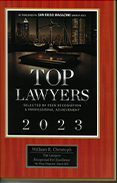Be prepared for San Diego-area sobriety checkpoints during the holidays
Even at lawful checkpoints, drivers have legal and constitutional rights that police must respect.
No one disagrees that reducing drunk driving and driving under the influence of drugs is in everyone’s interest. The use of sobriety checkpoints is a tool used by both the California Highway Patrol or CHP and local police departments to discourage driving under the influence. The methodical checking of drivers for drunk or drugged driving behavior when they pass through checkpoints routes is not only a way to take dangerous drivers off the road, but also a deterrent to impaired driving.
As we approach the holiday season in 2017, it is almost certain that sobriety checkpoints will be again part of the law enforcement picture around the San Diego area.
Authorities must carefully conduct checkpoints
Both the U.S. Supreme Court and the California Supreme Court have said that if law enforcement adheres to certain procedural safeguards, sobriety checkpoints are legal. For example, police decisions regarding location, time, visibility and safe execution must be calculated to reduce the intrusiveness of the experience for drivers.
In addition, at a checkpoint police must still respect a driver’s constitutional and legal rights that protect him or her from unlawful search, seizure and arrest. Officers must provide appropriate Miranda rights. Law enforcement must also adhere to legal standards in conducting field sobriety testing, breath tests, blood tests and other procedures involving potential defendants. Further, Breathalyzer equipment must be properly maintained and used and any laboratory testing of specimens must follow careful procedures to ensure valid results.
San Diego-area checkpoint practices
In October 2017, the San Diego Patch published an article about an upcoming checkpoint within city limits. The article interviewed an officer who said that the location would be determined after considering where accidents have happened and where drunk driving arrests have been frequent. The officer also noted that routine, publicized sobriety checkpoints combined with regular drunk-driving patrols can reduce DUI accidents by up to 20 percent.
Regarding timing of checkpoints, CBS8.com reported that San Diego Police began in summer 2017 setting up more checkpoints on weekdays, rather than the traditional weekend scheduling, because of a rise in drunk driving during the week.
Last month, in November 2017, police in Temecula announced a Friday checkpoint in which they planned to concentrate on screening for drivers under the influence of drugs, according to the Murrieta Patch. A police news release noted that prescription drugs can impair drivers to the level of illegal driving as can marijuana, especially when used with other drugs or with alcohol.
Officers who are specially trained to detect symptoms of drug impairment were to be utilized to evaluate suspected drivers when possible.
Seek legal advice as soon as possible
Anyone who faces drunk or drugged driving charges in California should seek legal advice from a lawyer as early as possible. The negative consequences of a conviction are severe and can include loss of driving privileges, fines, required coursework, incarceration, ignition interlock requirements and the repercussions of having a criminal record. An attorney can begin to launch a vigorous defense and investigation of the circumstances.
The DUI defense lawyers of Christoph Law Offices in Vista represent those accused of impaired driving throughout the greater San Diego area.







